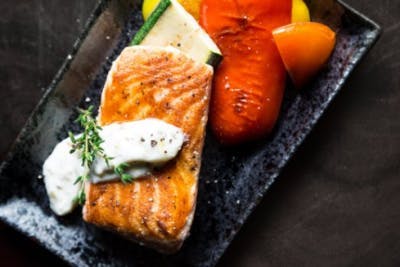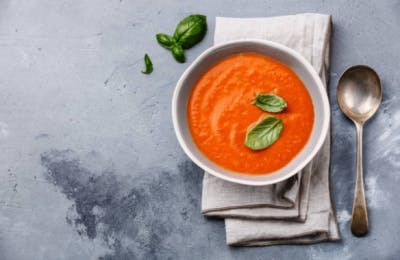From Flint Rehab, so quality info but still almost totally useless. No amounts given, so our stroke medical professionals are still abdicating their responsibility to get us recovered. Start guessing.
9 Foods that Help Stroke Recovery (Backed by the Latest Science)
1. Flaxseeds (Alpha-Linolenic Acid)
Flaxseeds are a great source of alpha-linolenic acid, which is a plant-based essential omega-3 fatty acid that must be obtained through the diet. Your body cannot produce ALA on its own – it must be eaten.A recent review article highlighted that ALA boosts brain-derived neurotrohpic factor and boosts neuroprotection and neuroplasticity.
Not only can ALA help with stroke recovery, but it can also help protect against stroke, too. This is critical for stroke patients who are at a higher risk of having another stroke.
2. Salmon (EPA)

However, if you can get your vitamins from food, that’s the better choice. Fatty fish like salmon contain an omega 3 called EPA, which your body needs. Your body does produce some EPA on its own, so it’s a good idea to add natural sources of it to your diet.
3. Blueberries (Flavonoids)
Blueberries have been shown to improve cognitive abilities likely due to their flavonoids, which are known to boost BDNF. If your doctor has suggested a reduced-fat diet to help manage stroke risk factors like high cholesterol, blueberries could make a great addition to your diet.4. Pomegranate (Antioxidants)
Whether you’re eating them or drinking their juice, pomegranates are high in potent antioxidants, which help protect you from the damage caused by free radicals. Since the brain is most sensitive to free radical damage, pomegranates easily make the list of best foods for stroke recovery.5. Tomatoes (Lycopene)

Lycopene was found to provide neuroprotective benefits and reduce the effect of brain damage due to ischemic stroke in rats.
Many lycopene supplements now exist, but we recommend getting your lycopene straight from the source: tomatoes. If you opt for tomato soup, be careful to avoid brands with lots of added sugars.
6. Nuts and Seeds (Vitamin E)
Nuts and seeds are a good source of vitamin E, an antioxidant that corresponds with less cognitive decline as we get older. Although more studies are needed to prove that vitamin E specifically helps with recovery from stroke, it made the list because the brain-boosting benefits are clear.7. Avocados (Oleic Acid)
The grey matter in your brain that processes information relies on oleic acid to perform at optimal speed, and avocados are an excellent source of oleic acid. It’s also a great source of antioxidants.One review article claimed that the unique antioxidants in avocados “may be promising as effective neuroprotective agents.”
Try adding a quarter of an avocado to your sandwich, salad, or smoothie.
8. Beans (Magnesium)
Magnesium offers “significant neuroprotection” in different models of stroke in rats. While more studies are needed to prove its benefit for stroke recovery in humans, magnesium makes the list due to its role in neuromuscular function.Beans are an excellent source of magnesium. Some tasty ways to get them into your diet include hummus and black bean dip.
Learn about magnesium oil for stroke recovery »
9. Red Wine (Polyphenol)
Research has shown that the relative risk of developing ischemic stroke is lowered by moderate alcohol consumption. However, it’s still unclear if the benefit comes from alcohol itself or red wine in particular, which contains a well-known polyphenol called resveratrol.One study found significant increases in BDNF concentration in rats treated with resveratrol, which puts red wine on the list of foods that help stroke recovery.
No comments:
Post a Comment